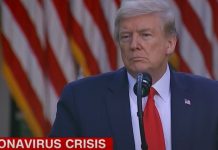The Trump administration is continuing its attack on the environment with a new set of regulation rollbacks aimed at offshore drilling rules put in place after the Deepwater Horizon spill in 2010.
Come Friday, the Bureau of Safety and Environmental Enforcement (BSEE) will publish new guidelines for the safety regulations according to the Trump administration’s tastes. The changes will also affect the well-control rule, which was put in place to prevent the kind of blast that caused the 2010 spill that killed 11 workers.
Rules On The Chopping Block
One of the rules on the chopping block requires that safety and pollution prevention equipment be inspected by independent auditors certified by the BSEE. Now, the standards will fall back on pre-Deepwater Horizon conditions.
Many of the changes are purely linguistic but could have a devastating impact on the environment. For example, the guidance regarding the amount of pressure agency operators are required to maintain in the wells to prevent accidents will no longer contain the word “safe.” They will no longer have to “show” that the pressure is in balance, but rather “indicate” whether that is the case.
Companies will no longer have to complete investigations into well failures within 120 days of an accident, but rather are advised to begin an investigation within 120 days with no specific end date.
The administration has clearly been heavily lobbied by the oil and gas industry. According to the Chicago Tribune, a coalition of seven industry groups submitted a 53-page letter suggesting the proposed changes to the well control rule.
A Step In The Wrong Direction
“It’s time for a paradigm shift,” said BSEE Director Scott Angelle in a statement. To where? The only other direction to turn is backward. At what cost are we willing to pursue this kind of profit?
“There was an assumption made previously that only more rules would increase safety, but ultimately it is not an either/or proposition. We can actually increase domestic energy production and increase safety and environmental protection.”
The spill in 2010 resulted in 200 million gallons of crude oil dumped into the Gulf of Mexico. With thousands of marine animals killed and hundreds of cleanup workers and Gulf residents exposed to toxic chemicals, ecosystems do not quickly recover from such a disaster.
And regarding energy production: the spill caused a six-month shutdown of all deepwater drilling in the Gulf. Why risk a setback with such consequences?
The way to increase energy production while protecting the environment is to transition the energy sector into green energy jobs and sources. The United States would likely remain a world leader in energy production.
Instead, the Trump administration is arguing that current regulation is “overly burdensome.”
It’s profit over lives and profit over the Earth. When the planet can no longer sustain human life, what comes next?
Featured Image via Youtube.










